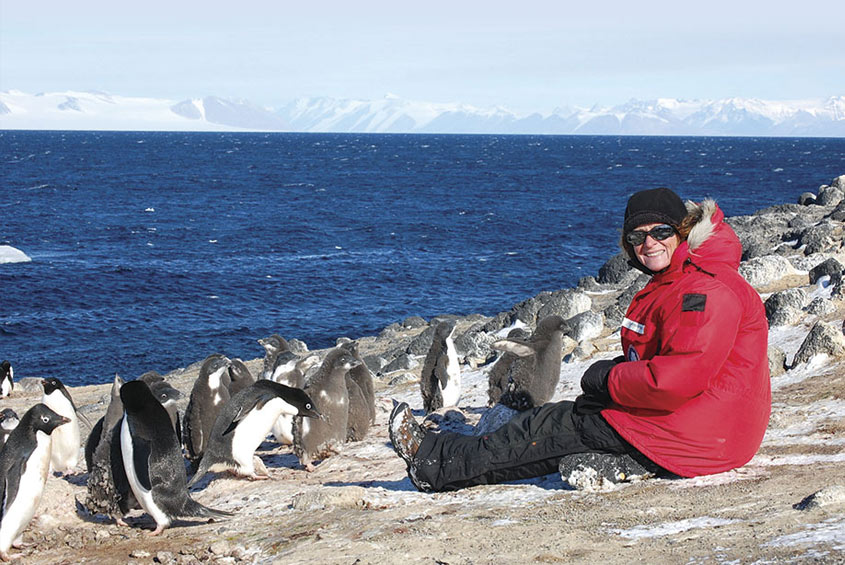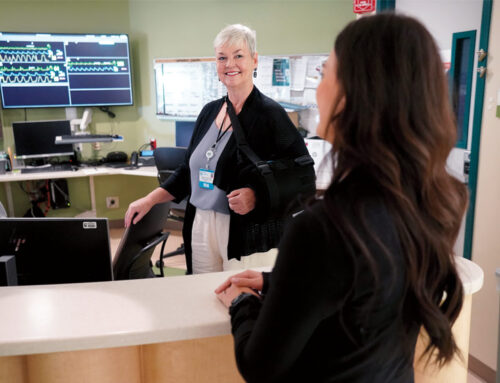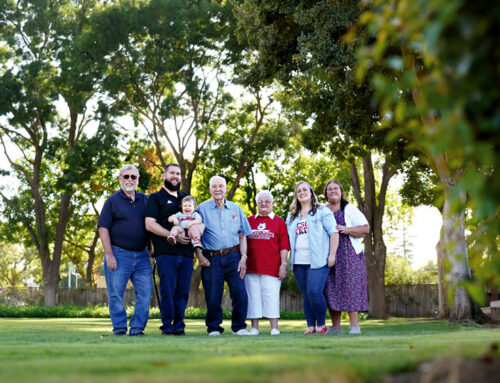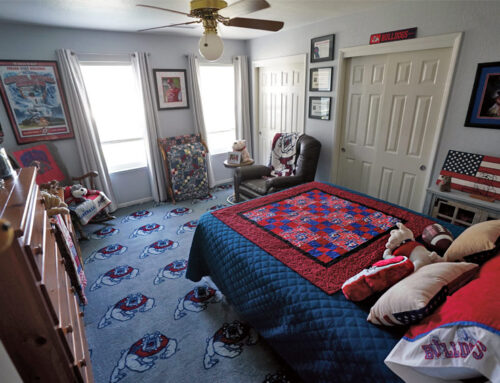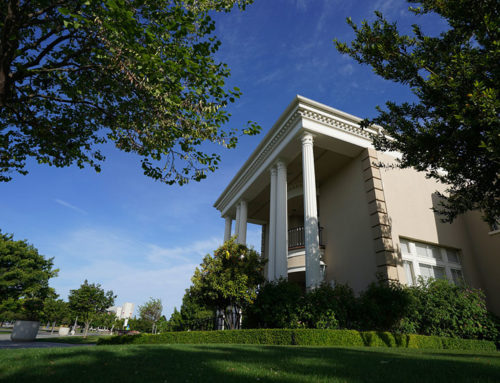This Research is for the Birds
From Fresno to Antarctica, alumna studies Adelie Penguins
By Victoria Cisneros
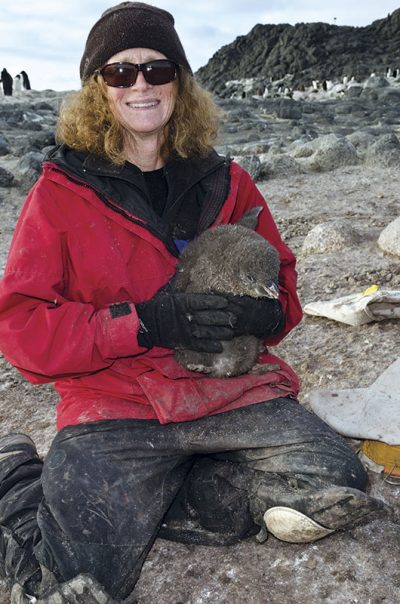 Negative temperatures still fill the daily forecasts as summer sets in across Antarctica. A white blanket of ice stretches across the entire continent, leaving only small pockets of land where the rocks have pushed their way through. This desolate oasis is home to the Adelie Penguins — and to science educator Jean Pennycook.
Negative temperatures still fill the daily forecasts as summer sets in across Antarctica. A white blanket of ice stretches across the entire continent, leaving only small pockets of land where the rocks have pushed their way through. This desolate oasis is home to the Adelie Penguins — and to science educator Jean Pennycook.
Before Pennycook left triple-digit Fresno for the ice-ridden shores of Antarctica, she served the Central Valley as a high school science teacher for over 25 years. Her undergraduate degree in wildlife and fisheries biology from the University of California at Davis gave her a background in science, while her master’s in science education from Fresno State (2003) gave her the ability to share that science with the world.
In the late 1990s, while working for Fresno Unified School District, Pennycook discovered an opportunity to return to fieldwork.
“There was a project through the National Science Foundation that sends teachers to Antarctica and the Arctic as the education outreach person for the science team,” Pennycook says. “That was my first experience in Antarctica, and when I did that, I said this is what I’m going to do for the rest of my life.”
Initially, she was hired to do educational outreach for the volcano research team, but after her first few seasons in the field, she moved to lower ground to study the Adelie Penguins. Pennycook has returned to Cape Royds every year since from October to January, just in time for the penguins’ breeding season.
Though the research remains a priority, she often finds herself sitting on the ice for hours, paralyzed by the serenity.
“Sometimes I just sit there and weep at the gift of being surrounded by these birds who are just not afraid of you and will come right to you. It’s a magnificent place, Antarctica,” she says. “I’m just honored to get to go and be with these animals and work with them for basically four months out of the year.”
Although amenities are scarce, Pennycook is well equipped with internet access that she uses to update her website, penguinscience.com. Her posts include daily time-lapse animations and educational activities for students. Some of her most popular activities are the Postcard Project, where students can send and receive postcards directly from her, and Nest Check, a daily photo gallery that follows certain penguins through phases of breeding season.
This past August, she returned to her alma mater to speak at an Osher Lifelong Learning Institute class at Fresno State for adults age 50 and older who have a joy for learning.
“There are many, many misconceptions about our polar environments so a lot of that is trying to get people educated,” Pennycook says. “Things are changing, and we’d like people to not only revere penguins and the other animals that live there, but choose to protect them.”
In her nearly 20 years of experience, Pennycook says she has seen increasing evidence of a changing environment, causing concern for the future of the Adelies.
While she has always been passionate about wildlife and sustainability, her position in Antarctica has empowered her to become a more hands-on advocate. She hopes her work will motivate the public to action and raise awareness about the impact of each person’s global footprint.
“What I mean by global footprint is their total life consumption of stuff. Energy and stuff. And if we all just reduced a little bit, it would mean a lot to the penguins, whales and seals. It’s all about everybody, all of us, changing our lifestyle — plain and simple.”
— Victoria Cisneros is a student communications assistant for the Fresno State Alumni Association.

